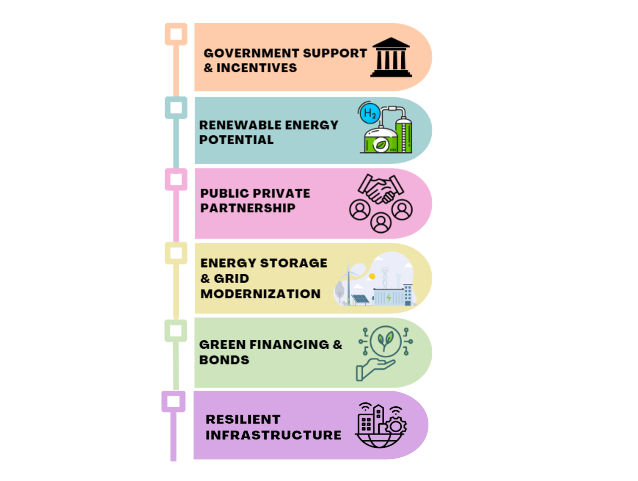
The Philippines, with its increasing energy demand, natural resources, and favourable government policies, presents significant opportunities for foreign investors in the renewable energy sector. The country is making strides toward sustainability, with a clear focus on solar, wind, hydro, and geothermal energy sources. This article explores the market potential, government support, and key investment areas for foreign investors considering the Philippine renewable energy market.
The Philippines is one of Southeast Asia’s fastest-growing economies, and its energy demand is increasing rapidly, with electricity consumption growing at an average rate of 6-8% per year. By 2040, the country needs an additional 40,000 MW of power capacity. Currently, renewable energy accounts for about 30% of the country’s energy mix, and the government aims to raise this to 50% by 2030. With its growing population and industrial base, the Philippines presents a significant opportunity for foreign investment in the renewable energy sector.

The Philippine government has implemented several key policies to promote renewable energy investment. Notable initiatives include:
These measures have created a business-friendly environment for foreign investors, ensuring that they can participate in the country’s renewable energy transition.
Along with opportunities in different renewable energy domains, the Philippine government is also promoting Public-Private Partnerships (PPPs) as a way to drive renewable energy development. In 2023, the government launched new PPP frameworks specifically targeting renewable energy, with an emphasis on solar and wind projects in off-grid areas. These partnerships offer foreign investors opportunities to mitigate risks and gain access to government support and infrastructure.
As renewable energy capacity continues to grow; energy storage and grid modernization have become crucial to ensure the reliability and stability of the energy supply. Philippines is investing heavily in advanced storage systems and has developed policies and plans to modernize its grid infrastructure and accommodate increasing renewable energy penetration.
The energy storage market in the Philippines is expected to see significant growth, with investments in battery storage solutions, microgrids, and grid integration technologies projected to rise substantially. Foreign investors can capitalize on this growing demand for energy management solutions and take advantage of it before local providers.
To fund renewable energy projects, the Philippines has been active in utilizing green bonds and green financing. In 2023, the government raised over $500 million through green bonds, directed toward the development of renewable energy and environmental sustainability projects. These financial instruments offer both an opportunity to support clean energy projects and receive returns on investment, which serves as a lucrative bait for renewable energy start-ups looking to invest in other countries.
The Philippines’ frequent exposure to natural disasters, such as typhoons and earthquakes, has driven investments in resilient and adaptive energy infrastructure. Renewable energy projects, especially those incorporating decentralized systems like microgrids and modular energy solutions, are designed to withstand these challenges, making the country a robust market for innovative and disaster-resilient renewable energy technologies.
The Philippines is one of the most promising markets in Southeast Asia for renewable energy investments. With abundant natural resources, a growing energy demand, and strong government support for sustainability, the country offers diverse opportunities for investors in solar, wind, geothermal, and hydropower sectors. The government’s ambitious renewable energy targets, combined with attractive incentives such as tax exemptions, feed-in tariffs, and PPP opportunities, make the Philippines an ideal destination for foreign investment. As the country continues to modernize its energy infrastructure, it remains a prime market for renewable energy investors.
Stay up to update with our latest news.
Have Us Contact You

© Copyright ASEAN Business Partners 2025 I Sitemap I Privacy Policy